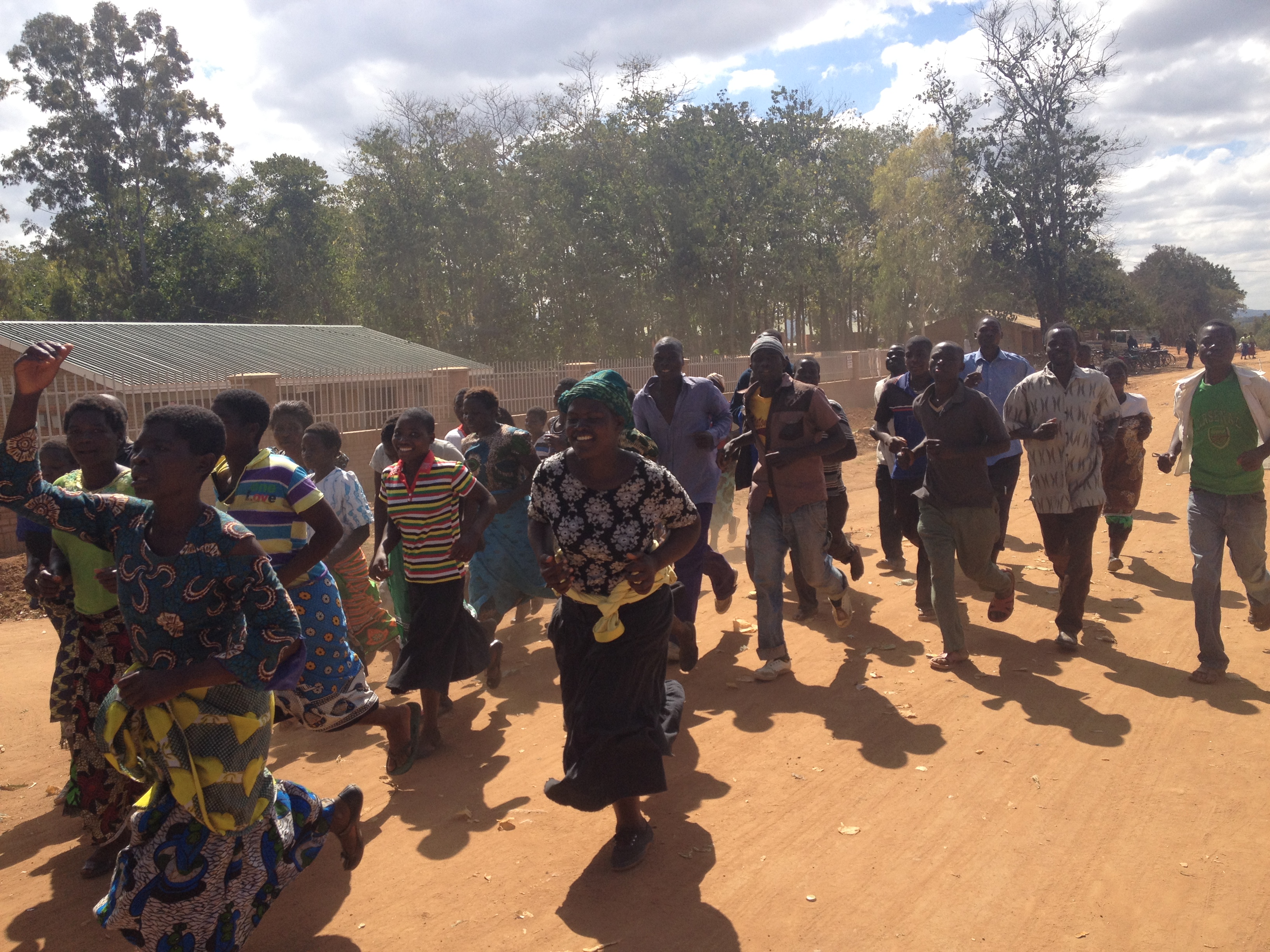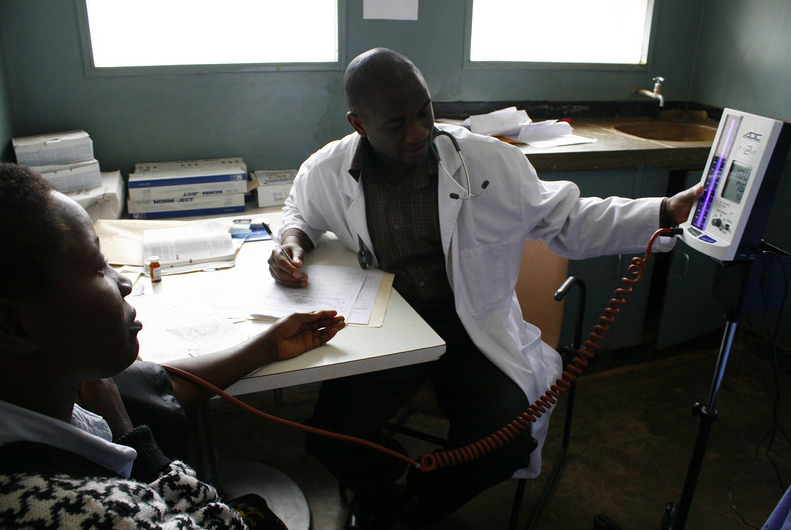
Emilie Njovuyalema grows maize on a small hillside plot in the southern African nation of Malawi. In the last year, she says, prices of basic goods like soap and salt have increased drastically after the government devalued the kwacha, Malawi's currency.
Though the price of maize increased as well, Njovuyalema says she was unable to produce a surplus that she could sell because she could not afford the high price of fertilizer.
Currency devaluation is not something that Americans often think about. But in countries like Malawi, where for many years the currency was pegged to the value of the U.S. dollar, the decision to devalue a currency can be tremendously controversial.
In May 2012, following years of poor harvests and low exports, Malawi's public and private sectors were running short of the foreign exchange needed to buy imports like fuel. So Malawi's new president, Joyce Banda, announced that she would immediately devalue the currency by 49 percent, with the expectation that Malawi's exports would become cheaper for foreign buyers, and Malawi would get the U.S. dollars it needed to buy oil and other goods on international markets. Banda also announced that henceforth the currency would no longer be pegged to the dollar. All told, the value of Malawi's currency fell from 165 kwacha per dollar in May 2012 to 415 kwacha per dollar by early 2013.
For the most part, international financial institutions such as the International Monetary Fund hailed this decision as a solution to Malawi's fuel and foreign exchange crises, but the effect on Malawi's millions of rural semi-subsistence farmers has received less attention in the international press.
Mavuto Bamusi, a prominent civil society activist in Malawi's capital of Lilongwe, believes the devaluation was, on balance, detrimental to Malawi's poor. He notes that once Malawi began to pay higher prices for fuel, the prices of all goods increased in tandem.
The increase in the price of maize was especially troublesome. Maize is always more expensive during what Malawians call the hungry season, as farmers exhaust their stores from the maize harvest each May and await the next. But, according to a report compiled by a Christian advocacy organization called the Centre for Social Concern, the price of maize in urban markets rose 300-400 percent in the year following the devaluation, and remained elevated even after the 2013 maize harvest. In the aftermath of this price increase, Malawians have turned increasingly to other ways of finding cash, such as burning trees to make charcoal.
Njovuyalema and many other rural farmers hold President Banda's regime responsible for the devaluation and subsequent increase in prices.
Opposition politicians, including Peter Mutharika, the former president's brother and a candidate for president in the May 2014 elections, have tried to capitalize on the discontent over the devaluation. Mutharika has argued that devaluation was far too rapid and was not accompanied by programs to help mitigate the effect on the poor.
President Banda says that her predecessor let the currency problem fester until she had no choice but to immediately and rapidly devalue. To those who call her policies callous, Banda points to the large-scale provision of emergency food packages during the hungry season in early 2013, and her finance minister has argued that the recent increase in the value of the currency indicates that the worst has passed. Malawian farmers like Njovuyalema, rarely far from the edge of subsistence, say they hope they won't have to endure another hungry season with high prices.





